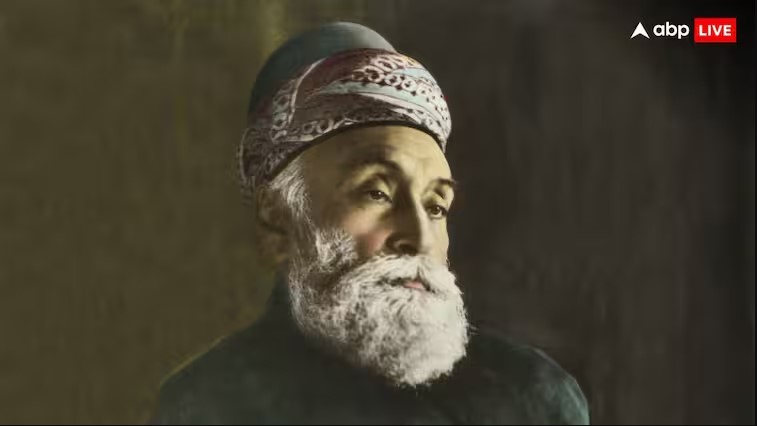Sustainable Talent Management is an infinite game.
- Gopalakrishnan*
*(The writer is an author and business commentator. His fifty-year professional career was in HUL and Tata).
We celebrate the success of Indian CEOs who have made it big in international companies. Apart from business managers, kudos and encomiums are also due to academics, doctors, and scientists, who have deservedly begun to achieve international recognition. While the leaders have great merit, we cannot overlook the meritocracy in those countries that encourages great talent to flower.
So far as management is concerned, I have a deep interest partly because of my professional background, and partly because of my passionate belief that talent and management excellence are the most important ingredients to synthesize SHE enterprises—sustainable, honest, and enlightened enterprises. SHE companies are crucial for the advancement of our nation. Every nation has developed by building great enterprises. The track record of talent management among many companies, both established and start-up, suggests that India can do better. Just six generations ago, there was no concept of an Indian manager. This article explores a brief history of the factors that led to the establishment and growth of Indian management talent.
Circa 1800, India counted among the richest nations in the world in terms of GDP, which is why the Dutch, the English, the French, were all eager to trade with India. Recall what led to colonization. Textiles, spices, ivory, agricultural commodities, were all hugely valuable trading items. The industrial revolution in England led to employment generation in mining, manufacturing, railways, postal system, among many others. Apart from workers, the tribe of managers started to develop. In their own interests, the British colonialists introduced infrastructural activities in their most prized colony. In the initial decades, experienced British workers and technicians worked in India as supervisors or managers. The activity reserved for the natives within India or other colonies in Africa, West Indies, Guyana, or Fiji, was unskilled labor.
Historians credit Dadabhai Naoroji for mooting and advocating the idea that ‘natives’ had to be trained and deployed on the administrative challenges of a complex country like India. As a British parliamentarian, Naoroji lobbied for the ICS cadre to admit suitable Indians. His mission met with initial success when Indians were allowed to sit for the ICS exam, but the exam was conducted only in London. He then pushed for the ICS entrance exam to be held in India, concurrent with the exam in London. Several years later, ICS exams started to be held concurrently. It was in this manner that Indians were groomed to be ICS officers in India.
Meanwhile railways and postal services started to be established in India. Progressively Indians started to enter the defense forces as juniors. Private entrepreneurs took to modern industry, particularly in the domains of textiles, jute, coal, steel, tea, just to name a few. All such activities required administrative and management talent. Indians joined as junior staff members, and a few grew to junior managerial roles. This was largely true right into the 1930s.
International companies also began to develop the Indian market for their products. BAT, the original promoter of what we know today as ITC, started to set up distribution of cigarettes throughout India. Unilever started to manufacture its globally famous Sunlight and Lifebuoy soaps and exported product to India from the 1880s. Thereafter, Unilever set up local manufacturing in the 1930s. To make, distribute, and sell, initially young British managers were deputed to appoint wholesalers in towns all over India, drawing from trading communities of India. A senior Unilever officer called Andrew Knox, then chairman of what was called the overseas committee, wrote a report in the early 1930s. This report now lies in the Unilever archives. In it, Knox recorded that unless Unilever should “Indianize” the management to develop the Indian market. Either he was clairvoyant or just a shrewd observer; that is exactly what the global company started to do soon after. The first Indian “covenanted manager” to be recruited was Prakash Tandon in 1937.
Among international companies, Unilever identified and developed Indian managers since the mid-1930s. They did it so well that today after several decades, HUL-recruited Indians occupy top positions in the global corporation. Arguably, Unilever has been the most successful among all companies in talent development. During the last few decades, at any point of time, the Indian subsidiary had about 150-200 managers on secondment to other geographies in which Unilever operated. The author has benefitted from such secondment when he was posted to head the Unilever subsidiary in the Arabian Peninsula several decades ago.
Dadabhai Naoroji’s pursuit of recruiting Indians into the civil service resulted in Satyendranath Tagore, brother of the illustrious poet, joining the ICS around 1864. For the army, it was a momentous occasion, when, in 1949, Gen KM Cariappa was appointed as the first Indian to head the Indian Army. JM Lall became the first Indian CEO of Imperial Chemical Industries in 1959. When Prakash Tandon became the first Indian Chairman of Hindustan Lever in 1961, it was a tribute to the vision of Andrew Knox, and was notable for business management.
It was not only the international companies who started to take such deliberate steps. Indian entrepreneurs started to develop their own ambitions. Textile mills came up in Bombay and Ahmedabad. Jute mills were set up in undivided Bengal. Tea plantations and factories were established in Assam, Kerala, and Tamilnadu. Tata set up the steel plant and hydroelectric power stations. All of them either recruited foreigners for technical help or trained their own manpower. These Indian entrepreneurs were focused on developing Indian managerial talent.
As can be seen from this brief review, talent management has been a complex and long journey, demanding great persistence and patience. Talent management represents the “infinite game,” to borrow Simon Sinek’s term.



